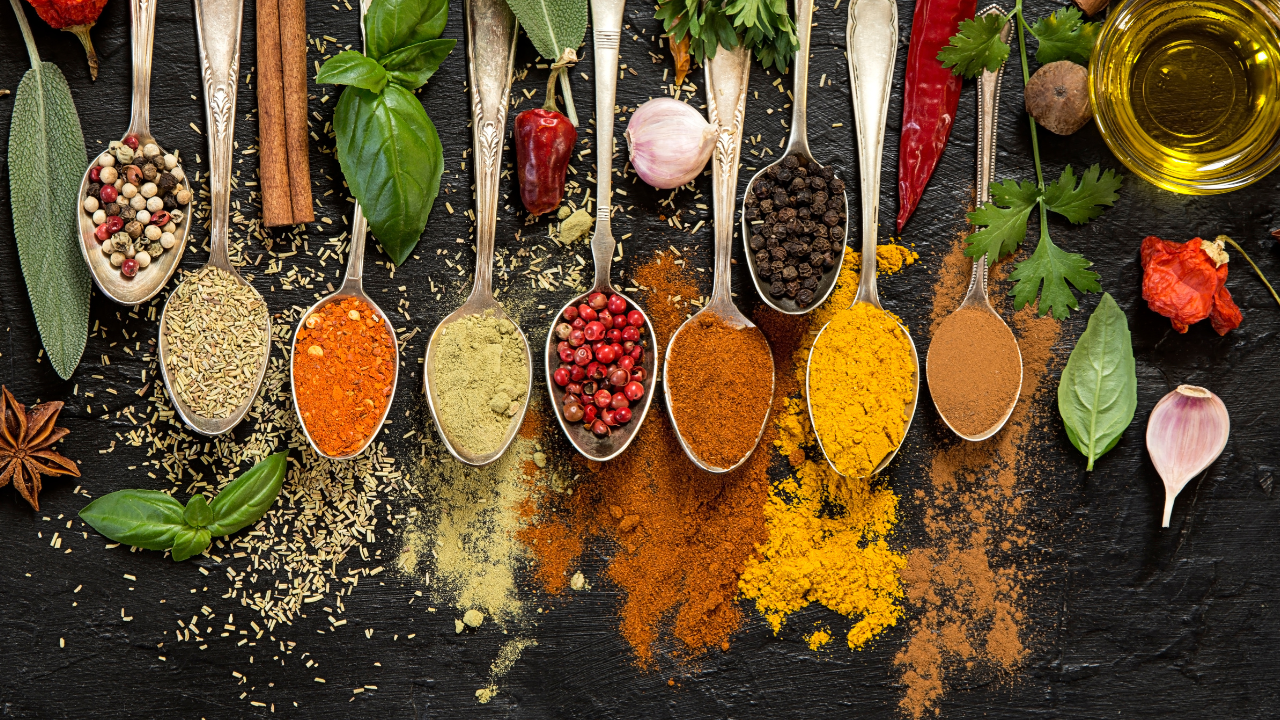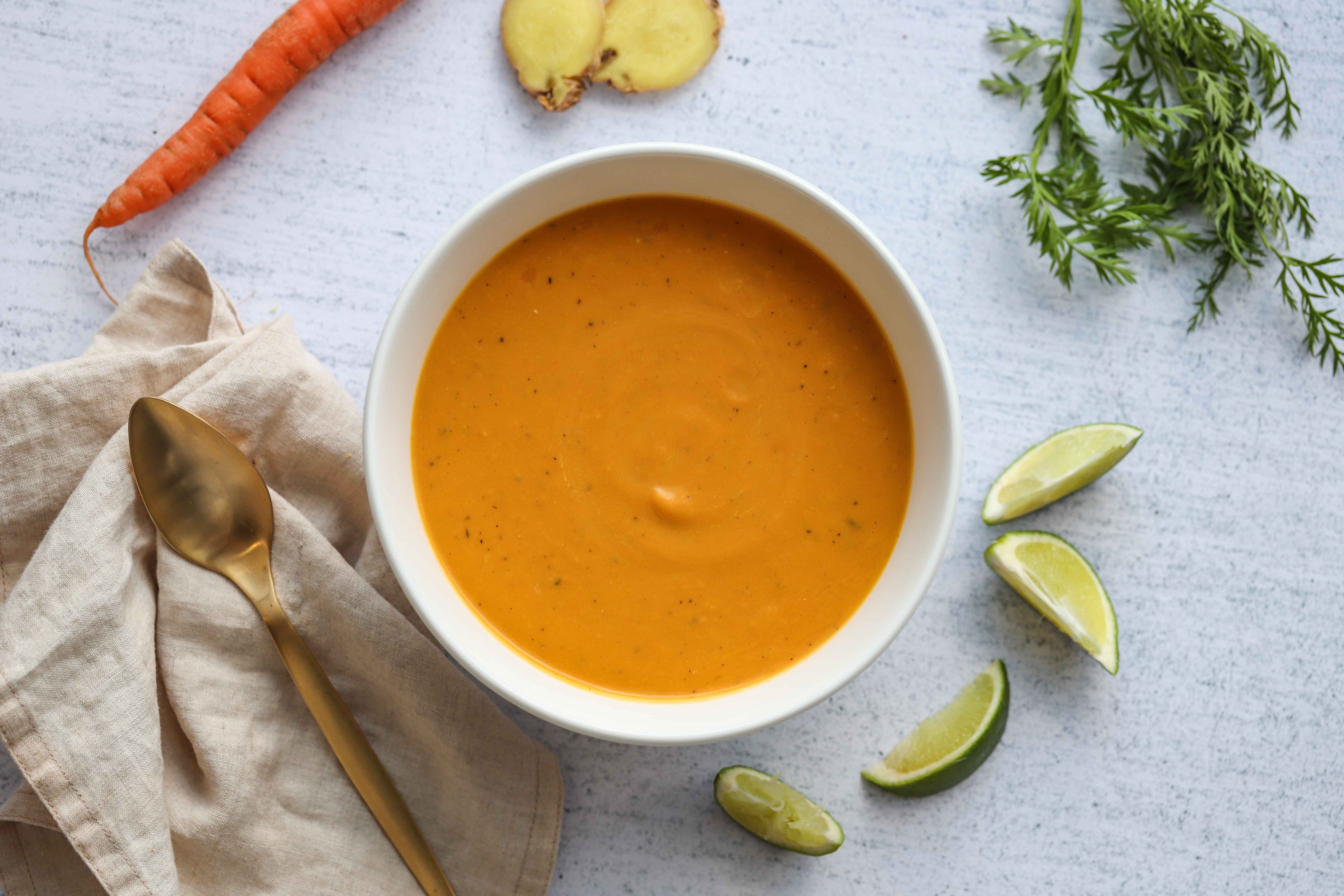Time to spice up your life ... Or at least your recipes!
Jun 04, 2023
Tired of cooking the same recipes each week? Wondering if there’s a way to make them more tasty and exciting?
Well, the answer is “Yes!”
And it’s simple, too. Have some fun, experiment and add not only flavour, but also nutritional value to your old favourites.
And keep reading for an easy Carrot Ginger Soup recipe!
It turns out that nutrition researchers have found that there are more than 100 common spices used in cooking around the world, and some have proven to be concentrated sources of antioxidants — substances that protect your cells from damage.
And if you’re fortunate enough to have done some travelling to exotic locations around the world, or you live in a location with many immigrants from other countries who have brought their own cooking traditions with them, you will know that many dishes from around the world use a variety of spices, and they are delicious!
Important: Some herbs in large doses can cause side effects or interact with medications. Use moderation, and tell your doctor about any herbal supplements you take.
What’s the difference between spices and herbs?
Spices are seeds, fruit, roots, bark or other plant substances used primarily for flavouring or colouring food. Whereas Herbs are the leaves, flowers or stems of plants used for flavouring or as a garnish. Spices may also be used in cosmetics, perfume, and spiritual rituals.
How to buy your spices
Spices may be available in several forms: fresh, whole and dried, or dried and pre-ground into a powder.
A whole dried spice has the longest shelf life, while a fresh spice, such as ginger, is usually more flavourful than its dried form but has a much shorter shelf life.
Small seeds, such as fennel and mustard seeds, are often used both whole and in powder form.
What’s the benefit?
Both herbs and spices are full of healthy compounds that have health benefits. They may fight inflammation and reduce damage to your body’s cells, because they are rich in phytochemicals, which are healthful plant chemicals.
According to researcher Alan Jiang, as published in the Journal of AOAC INTERNATIONAL:
“There is now ample evidence that spices and herbs possess antioxidant, anti-inflammatory, antitumorigenic, anticarcinogenic, and glucose- and cholesterol-lowering activities as well as properties that affect cognition and mood. Research over the past decade has reported on the diverse range of health properties that they possess via their bioactive constituents, including sulfur-containing compounds, tannins, alkaloids, phenolic diterpenes, and vitamins, especially flavonoids and polyphenols.
Spices and herbs such as clove, rosemary, sage, oregano, and cinnamon are excellent sources of antioxidants with their high content of phenolic compounds.
It is evident that frequent consumption of spicy foods was also linked to a lower risk of death from cancer and ischemic heart and respiratory system diseases.”
Adding herbs and spices to your diet has another benefit
Because they’re so flavourful, they make it easier to cut back on less healthy ingredients like salt, sugar, and added fat.
So reach for your spice rack and you’ll not only add variety, and up the flavour of your food, but you’ll also get a boost of antioxidants and other healthy nutrients!
And stay tuned – over the next few weeks I’ll highlight some of my favourite herbs and spices!

Recipe ~ Carrot Ginger Soup
serves 6
- 1 tbsp. olive oil
- 1 onion, chopped
- 2 cloves garlic, minced
- 2 tbsp. ginger, grated (or to taste)
- 23 oz. (650g) carrots, peeled, chopped
- 4 cups (960ml) vegetable stock
- 1 tsp. salt
- ½ tsp. white pepper
- 1 tsp. thyme leaves, dried
- 14 oz. (400ml) can coconut milk, full fat
- ½ lime, juice
Directions
- Heat the olive oil in a large pan, over a medium heat. Cook the onion for 5-6 minutes, until soft. Add the garlic and ginger, and cook for a further 1-2 minutes.
- Add the carrots, vegetable stock, salt, pepper and dried thyme, and stir well to combine. Simmer for 20-30 minutes, until the carrots have softened.
- Allow to cool slightly and blend until smooth using either a hand blender or a food processor.
- Finally, stir in coconut milk and lime juice, and serve.
- This soup can be stored in an air tight container in the fridge for up to 4 days.
For more info on this and other natural health topics:
Sign up NOW for my weekly newsletter, and you'll also get the Sugar-Free Kitchen Recipe Club e-book #1!
If you're like me, you're often looking for new recipes to try.
Every week I'll be sending out some recipes to everyone who subscribes to my newsletter!
Don't worry, your information will not be shared or sold in any way, for any reason. And you may unsubscribe at any time.


